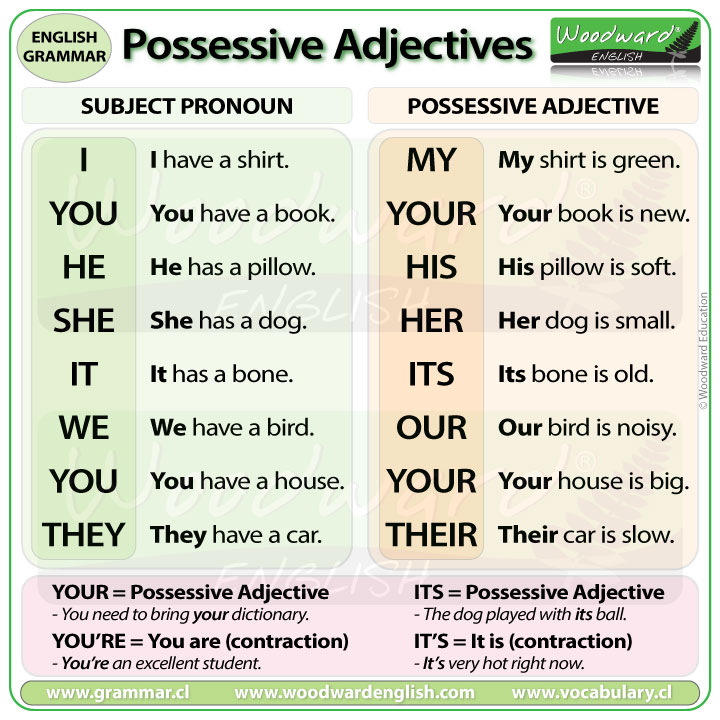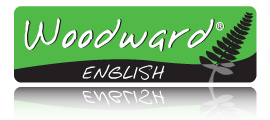Possessive Adjectives in English
- I have a shirt. My shirt is green.
I… is a subject pronoun.
MY… is a possessive adjective.
A possessive adjective shows possession or a relationship.
- You have a book.
Your book is new.
It is not my book.
It is your book.
More examples of possessive adjectives:
- He has a pillow.
His pillow is soft. - She has a dog.
Her dog is small. - It has a bone.
Its bone is old. - We have a bird.
Our bird is noisy. - You have a house.
Your house is big. - They have a car.
Their car is slow.
My, Your, His, Her, Its, Our, Your, Their … these are Possessive Adjectives.

Possessive adjectives in English have one form. There is no plural form.
- My balloon is blue. (Balloon is singular)
- My balloons are blue. (Balloons is plural)
The possessive adjective MY does not change.
Another example:
- Your balloon is green. (CORRECT)
- Your balloons are green. (CORRECT)
Again, the possessive adjective, Your does not change. We cannot say:
- Yours balloons. (WRONG)
We say: YOUR balloons.
Its vs. It’s
Do not confuse IT’S with ITS.
It’s = a contraction of it is.
- It’s hot today = It is hot today.
Its = the possessive adjective for it.
- The cat is eating its food.
It’s not my food.
It is its food.
We will see more about the difference between Its and It’s in another lesson.
Your vs. You’re
Do not confuse YOU’RE with YOUR.
You’re = a contraction of you are.
- You’re intelligent = You are intelligent.
Your = the possessive adjective for you.
- I like YOUR dress.
It is not my dress.
It is YOUR dress.
We will see more about the difference between Your and You’re in another lesson.
Has / Have + Possessive Adjectives – Easy English Exercises
Set 1 – Have / Has + Possessive Adjectives Exercises
Set 2 – Have / Has + Possessive Adjectives Exercises – Slightly more difficult vocabulary
